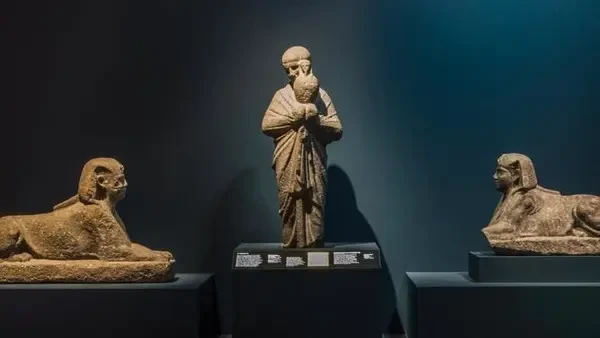The Council for Space Research and Remote Sensing is organizing a workshop on "Space industry in Egypt and Africa."
The Minister
of Higher Education and Scientific Research, Dr. Ayman Ashour, stressed the
need to exploit all the modern possibilities and equipment that Egypt enjoys
for the development of the space sector and technology, especially since Egypt
is one of the leading countries in this field on the continent of Africa, with
the Arab Republic of Egypt hosting the African Space Agency.
In this
context, the Council for Space Research and Remote Sensing of the Academy of
Scientific Research and Technology organized a workshop entitled "Space
industry in Egypt and Africa," at the headquarters of the Arab Academy of
Science, Technology and Maritime Transport, in the presence of leaders of
research centres and bodies, experts and researchers.
The events
included several scientific lectures, aimed at highlighting the importance of
the local, regional and international space industry, with a view to achieving
an economic return and contributing to national output, in fulfilment of the
political leadership's directives that attention should be paid to the
development of the space sector in Egypt.
Dr. Islam Abu Al-Magd, President of
the National Authority for Remote Sensing and Space Science (NARSS), gave a
lecture entitled "The Status Quo and Future Vision of the Space Industry
in Egypt and Africa". Several themes included the manufacture of space
components and the utilization of NTS expertise and capabilities and knowledge
on how to make some space components and subsystems, which have been tested and
operated on previous satellites such as Cube-Sat 1, NARSS Cube-Sat 1& NARSS
Cube-sat 2. And the experimental satellite, NEX Sat. and the most important
possible services were presented Satellite data should be provided at the local
and regional level for community solutions and solutions to the challenges
facing the African continent: pollution control, dust storms and sandstorms and
what they cause to the community; monitoring pollution in Marine territorial
waters; providing solutions to these contaminants; identifying the cause of
compensations for climate change in crops and crop observations; and supporting
food and food component transport in maritime navigation In aeronautics, there
are many applications in which satellite data can perform services within and
outside the boundaries of the home country.
The workshop was opened by Dr.
Mohamed Othman Arnus, Secretary of the Space and Aviation Research Council, and
the workshop covered presentation of many lectures. Dr. Mohamed Bahi El-Din,
former Director of the Egyptian Space Program (Egypt Sat 1), presented a
lecture on "The current situation of the space industry and technology in
Egypt", and Dr. Mohamed Mokhtar, former President of the National
Authority for Remote Sensing and Space Sciences presented a lecture entitled
"Investing in the Space and Space Information Industry", and Dr.
Yahya Zakaria, Dean of Postgraduate Affairs of the Arab Academy for Science and
Technology, also presented Lecture on "Information, services and the local
and regional market ".
The second
session was chaired by Dr. Mohamed Khalil Iraqi, Professor of Space Engineering
at Cairo University and former Vice-President of the Egyptian Space Agency. Dr.
Mohamed Ghneima, Director of Partnerships and Marketing at the Fund for the
Care of Innovators and Pygmies, gave a lecture entitled "The Leadership of
Businesses and Emerging Companies in Space," and Dr. Mohammed Abdelaziz
Al-Bachari, President of the Fringe Sector of the National Communications
Regulatory System and former Director of the Telecommunications Moon Project, Tiba-1
delivered a lecture on "Elements of the Strategy for the Advancement of
the Space Industry in Egypt."
The workshop
concluded with several recommendations: there must be a national objective that
will help the development of the space industry; there should be support For
start-ups, small and micro businesses and specialized companies in space; there
should be follow-up to the growth and increase in the size and specialization
of human cadres; and there should be greater qualification for the social and
dollar returns that they can provide to the space industry in Egypt; and there
should also be effective integration of space actors to support the space
industry in Egypt.











